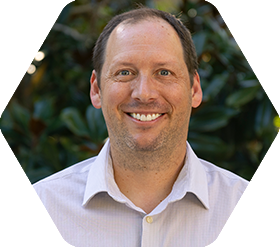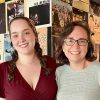When Matthew Karlesky, Ph.D., was an undergraduate, he was focused on galaxies, pulsars and supernovas. “When I was at Franklin & Marshall College, I wanted to be an astronomer,” says Karlesky, assistant professor of management at Eckerd College. “But my professor told me not to do that. Not that I wasn’t good at it, but there are about 2,000 astronomer jobs in the world and about 6,000 astronomers. And I wanted a job when I graduated.
In the end, he got the best of both worlds. It was while he was earning his master’s degree in international science and technology policy at The George Washington University that he discovered there was a way to marry science and management.
He dropped astronomy and instead concentrated on phenomena closer to home. After earning his doctorate degree in management and organizations from the University of Michigan, he geared his research toward exploring the social and psychological foundations of innovation and opportunity identification.

His work has appeared in the Journal of Applied Psychology; the Harvard Business Review; and The Oxford Handbook of Creativity, Innovation, and Entrepreneurship—among other publications. He also is a member of the Academy of Management.
Now in his second year at Eckerd, Karlesky previously taught at the University of South Florida’s Muma College of Business and at Suffolk University in Boston. He has taught undergraduate and graduate courses on strategic and international management, negotiations and conflict resolution, technology entrepreneurship, and organizational behavior. This semester, he is teaching Principles of Management and Leadership, and Human Resource Management.
“I’ve always had an affinity for liberal arts,” he says. “Business tends not to be a big part of liberal arts traditionally, but Eckerd takes a different approach.
“I try to encourage students to be critical thinkers and try to make positive contributions to the world. That’s something I think most educators try to do. I also hope they can see that the concepts we teach go far beyond the business world, and that they can use them as a lens to understand social life.”













